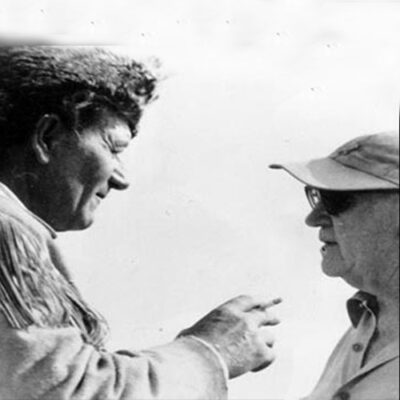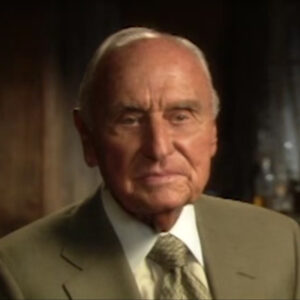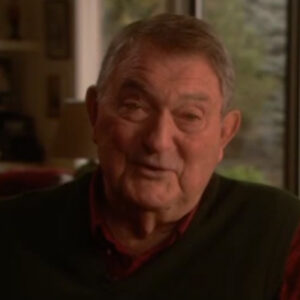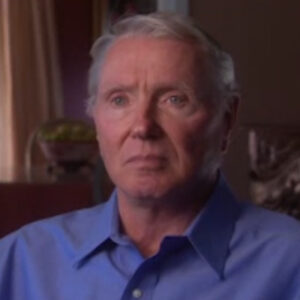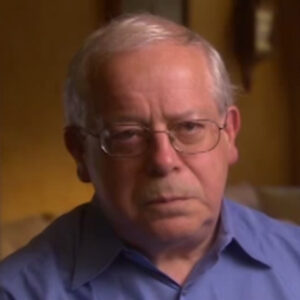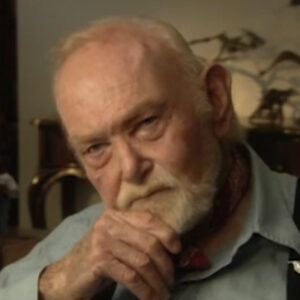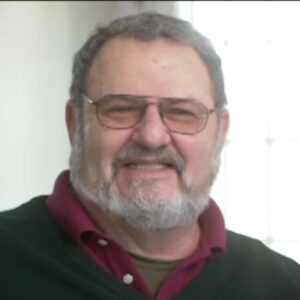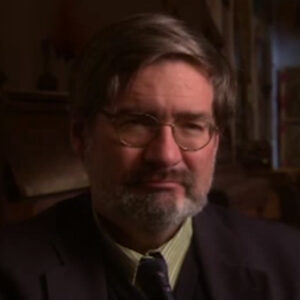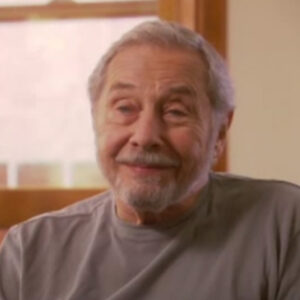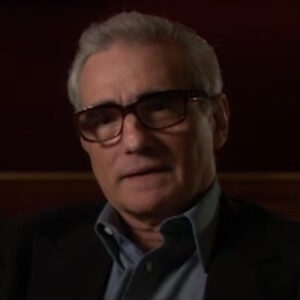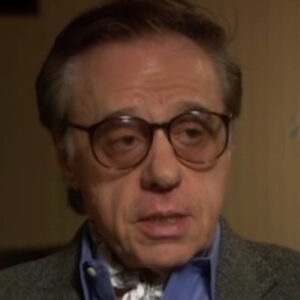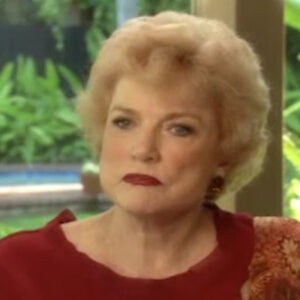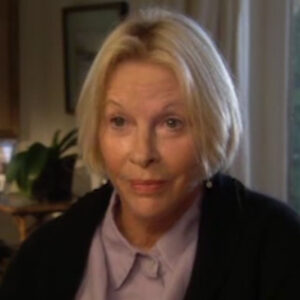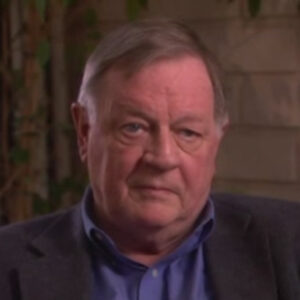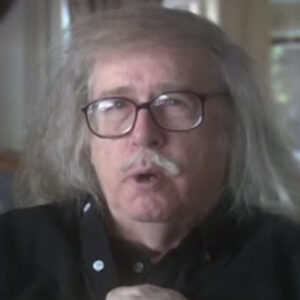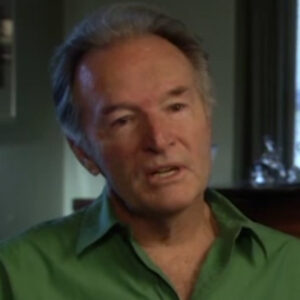Speaker Well, when my father worked with John Ford, they started when they were both young kids and but Stagecoach, he would talk about Stagecoach because that was, you know, I think it was probably the most recognized. I mean, it was nominated for Academy Awards for photographing Stagecoach. John Ford was intensely interested in the performances, trying to keep it real realistic. He wanted to take a realistic American history and represented he didn’t like he he wanted separated out from Westerns, per say it was all about realistic drama for him. They were both pretty mature by Stagecoach came along, but it’s interesting to remember they were in the 20s, they were kids, and my dad bought his camera in 1920 when he was 23 years old.
Speaker And so Ford was a kid, you know, so they were out there.
Speaker Working as kids, did he ever tell you what a typical day was like on a itself?
Speaker Well, John Ford was ruthlessly interested in realism, so that’s why the Monument Valley location was so pivotal and so important for him.
Speaker He he kept the process going forward. He didn’t let the crew dillydally. All good directors are like that that keep us on target. So.
Speaker He was concentrated watching, he would get so involved with the performances that he would get through his handkerchief. He’d sit there right by the camera and put the handkerchief corner his mouth and twist it around to it as he was looking at the performances.
Speaker And I know my dad just loved working with him. And so I know that they had a really good working relationship in the film Stagecoach in particular.
Speaker There’s a great chase scene at the end of the show with four crosses the axis, one side, obviously.
Speaker And there’s one one way that you see him going the other way right before they ever talk about one that happened and why.
Speaker Well, John Ford just figure that reality would trump anything. If you keep it real and you keep the audience’s attention, you can get away with murder.
Speaker There’s a very famous camera shadow and stagecoach on the back of Andy Devine. You can see it now because you can stop frame it. But when the steak was going across the river, we had to he had the camera over and my shoulder and it was late in the day and they couldn’t get the shot until the sun was behind him. So for about three or four solid seconds to see the outline of a Mitchell magazine on the back of Andy Devine. And the operator came to my dad and said, you know, we have a camera shadow all over the back of is why they try to disguise it with a piece of shrubbery, which you can see this like shrubbery thing. And so they went to John Ford and they said, Mr. Ford, you know, it’s not working out because we got this camera shadow right on the back. We see the outline of that cameraman’s hat and see the Mitchell finder. And you see the two Mitchell magazines right there for about three or four seconds. And Ford said, and this is over the shoulder of Annie Devine, it means the shot going down the slope. And you see this river and you see a six up is the six horses going across the river, big splashing.
Speaker And so that was like comparable to an action adventure film of today. And he said if the audience will never see the shadow, they’ll never see it. So we’re not going to print it and move on. And he said, I guarantee you nothing and no one has ever noticed it. I mean, it has to be pointed out, you can look at the film and you want to see it nowadays because you can stop for a minute and you can actually see it right there.
Speaker I’ve never seen it. It’s amazing.
Speaker Did you ever have a chance to go on the fourth set? I mean, you were young and it would take you to a fourth set of wagon master.
Speaker No, I was a kid. Well, I didn’t get into the business and I never visited. I visited a few of my dad’s sets. I actually met Mr Ford at my dad’s funeral in the church in nineteen sixty seven. And I was just starting out in the business and it’s quiet and my dad’s casket was there and they had the American flag over because he was a pilot in World War One and Ford was in the Army in World War Two Navy and he was in the military somehow.
Speaker But and so through the church doors comes John Ford, Charlie Greenlawn, who is the head of production at Warners and Jack Warner.
Speaker And they come marching down and Ford goes to the casket, you know, and he says he salutes and he says, well, Burt, see you later.
Speaker Turns around, walks out.
Speaker You know, they they had a real respect for each other.
Speaker It’s interesting, I mean, as a director of photography, you work with a lot of directors like Alexander Payne, what’s the difference? How would you compare the relationship that you had with Ford and the way you as a DP World with directors today?
Speaker Because the difference is that this is the same. You have to be. Well, I with the director, you have to encourage the director to be a daredevil. You have to I’m constantly saying, you know, use your instincts, use the force, Luke. In other words, the director will see things and you have to be able to allow encourage them to grab it. So you’re the role the cameraman today, as it was then, was to support the director 100 percent.
Speaker Did your dad ever talk about the relationship that he saw between Ford and Wayne when they were making those films together?
Speaker Well, not in details. They would hang out. I know my dad went one time. He was invited out to go on some fishing trip off of Catalina.
Speaker It was John Wayne, John Ford and Jack Warner. And I think Charlie Greenlaw and my dad and. They just went out there and drank whiskey and ate steaks and had a great time. I worked once with John Wayne when I was a assistant cameraman, a picture called Big Jake. And he was really old then.
Speaker And he he was who are doing his close ups. And Bill, Claudia was the director of photography. And I was like a second assistant standing by with a slate. And John, we need to do is supposed to be on a horse. They put him on a barrel, put the saddle on the barrel, and he was sitting on the back. You want anybody to take pictures of him?
Speaker And he’s sitting up there waiting, you know, and really getting up, you know, just irritated.
Speaker And I’m standing there next to him. He looks down and he says, Jim, you know, you’re old when he can’t drink whiskey, eat steak or sit astride a horse.
Speaker Listen to Duke was directed by George.
Speaker Yeah, George Herman, Big Jake and I was talking to someone the other day and he said that we was difficult with directors and the only directors. Really listen to this for you. Well, I was I was Wayne being directed by whether he was being directed by George Dick Cheney.
Speaker Well, I remember George Sherman as being totally familiar with the material in charge. Didn’t say much, seemed to lay out his day. And, you know, accurately, I think that he I think he had to be that way with guys like with John Wayne later in his career. I mean, they don’t want to dilly dally around. They want to they’re very professional and just wants to get it done. So I think I remember him admiring. I didn’t see there was no no conflict at all that I could see. There were both. They want to get about their business, get it shot.
Speaker Around this time, I mean, people and people think of John Wayne today, they think of him as a political super patriot like Lincoln, so they can pay him completely to John Ford. So they think they wanted the same man. Did your father ever talk about these two men were political?
Speaker No, not for say I mean, they were all kids of World War One and the thirties, which, you know, was right before World War two. And I think that all of them, they they appreciated and wanted to encourage individuality and the strength of the democracy. And I think that I mean, all of them seem to be cut from that cloth. You know, they they knew what what sacrifice was. They knew that.
Speaker You know, they appreciated the the difficulty in keeping a democracy going.
Speaker So I don’t know if that I don’t know if I’d call them right wing maybe compared to people today, you know, they are, but. I think they were they just knew it seen a lot, I mean, these guys had been through the wars and they’d seen a lot of people die the way they deserved, you know, but he was he was he didn’t serve.
Speaker But he was a he was appreciative of the efforts, you know, seems to be, from what I heard and round the dinner table.
Speaker My last question, I mean, some people would say that they did would. Is a Western that in some ways echoes what Ford was doing?
Speaker I’m not sure I understand, but do you think this is definitely definitely the similarity between the Westerns of John Ford and Deadwood? And it is Milch, you know, David Milch. Wants to know about wants to represent reality, 19th century America was an amazing situation here, and so I see that same kind of in pursuit of reality. So if we can accurately, accurately represent reality, we might be learning about ourselves today, and I think it’s really important and good and I applaud HBO, you know, because it’s courageous to to do this.
Speaker But if we can look at the facts, the true facts, and it’s all taken from a book written about Deadwood. So all of these things that we represent where the actually happened, you know.
Speaker And so if we say if these people can go through this this uncomfortable life and come out the other end and actually mold some kind of happiness out of it, then I guess I can survive. If I get if I get laid off at IBM or whatever, you know, it’s we can learn from history. And I think that this is in John Ford’s work. And I’m no expert on John Ford’s work. But if you look at like the quiet man or young Mr. Lincoln or Wagon Master or any of these films, him is always seems to be he celebrated the courage of the individual. And I think that’s that’s not a bad thing to do.
Speaker Composition form is known for its framing and its composition. How closely was that a link to the cinematographer?
Speaker It’s a symbiotic relationship and it is the same today. The relationship between the director and the DP, the director says, can we do it in? The DP says, yes, we can do it. A good example on Stagecoach. In fact, they did the work out on Monument Valley and there was one of the first depots it was under, partially underground. It had a stick mud roof. And John, when he gets out and he walks into this interior, down these steps, well, they came back to the studio to do the interior. And Ford wanted the camera on the ground of the stage floor looking up at John Wayne as he comes down the stairs.
Speaker And my dad says, Mr. Ford, you’re going to see the stage ceilings, the rafters and the scaffolding. And so Ford’s response was well below the ceiling there, build a false ceiling to cover it, which they did. And I understand that was the first time as 1939 that that that was that became the standard approach to you just put a false ceiling, you know, a ceiling piece we call them today. So it’s I think it’s the director’s duty to be greedy. And I think this is cameraman’s duty to do everything that they can to fulfill that appetite. You know, let’s encourage the directors and the writers to be courageous. Right. I was a mail boy at Warner Brothers, you know, and with Jack Warner. And he would go into the writers building, which is right across the next building, over a three storey building from his offices.
Speaker And he would go up there and give a walk through the building every day, giving pep talks to the writers. He called him. My little moneymakers, had a whole floor of guys writing and women writing and secretaries. And he’d walk up there and pat him on the back and say, you know, be brilliant, be brilliant. And I say the same thing to my crews today. Keep them willing to be brilliant, you know?
Speaker So my last question, I’m being a little greedy myself.
Speaker My last question is, so how should people remember that Ford and Wayne collaboration’s those collaboration’s over the years? Why is court considered such a great American actor?
Speaker Well, geez, that’s a two part question, I think Ford I think because he he he kept it real, he wasn’t trying to put one over on the audience.
Speaker He wasn’t it wasn’t about trickery. He was relentlessly real. And I think that we appreciate that. And that’s why his films, we can look at them now and they they’re fine. They’re intact. It’s it’s human emotion and drama. It’s David Milch said one time. He said it’s not the what’s said between the two characters. It’s the silent interaction or bargaining between the two actors that makes the drama. And I think that. John Ford was just a natural, what we call Film-Maker, but he was really just after reality and he liked the cameraman who would take the chance with them. Don’t play it safe.
Speaker Go out there, try it, you know, on the quiet man, he wanted to shoot it in colour, he wanted to shoot it in three color Technicolor, he knew that that would be impossibly expensive to bring all the equipment over to Ireland, but he needed to shoot it in Ireland. So he they shot all these vast exteriors in Ireland and these distant wide shot.
Speaker And then they came back to the stage here and and recreated the coverage with backdrops for for the quiet man because the camera was literally the size of a Volkswagen and it was just impossible to move it around.
Speaker So here was this guy that he may make this amazing film using. He so the restrictions, he was up against his amazing.
Speaker So but he did it so I for, well, four and Wayne always be remembered as such.
Speaker I don’t know. They spoke the same language.
Speaker I think that my dad said they always were bickering, but I think that is in front of me. Mean, I think they admired each other. I think Ford. Made John Wayne become more than he thought he could. And I think that John Wayne probably made Ford. You know, go the extra yard to. I’ll see you and raise you, if I’m going to do that, then then I should do this. They must have done that because that’s what happens today.
Speaker If you get actors and directors and you can just see that the chemistry is there and it just increases the what they’re making. It just makes their product better. And Jack Warner said an interesting thing to me wants to know is the mail boy there. He said that he said the Warner Brothers makes money with art and don’t forget it. And Art is not a bastard cousin to science, as I was going to UCLA at the time, taking film classes, he said. You know, in 1920, the Warners had a lot of technology, we don’t have any bit of it now, but we do have the copyrights that we acquired in 1920. We have every one of those copyrights and those copyrights make us money. So art makes money. Art will live forever. Technology which has changed it. And I think that Ford and Wayne and everybody, you know, I’ve heard people say, well, Wayne is, you know, not a significant actor. I think that he. Was a guy that had a very strong sense about him and personality, and he he probably always was riddled with self-doubt as to whether or not he was a good actor, but he figured he was going to do his best. And a guy like Ford would come along and see the best directors reach out and say, you pay attention to me. I’ll tell you exactly what you’re going to be doing. You know, it’s it’s a terrific relationship.

